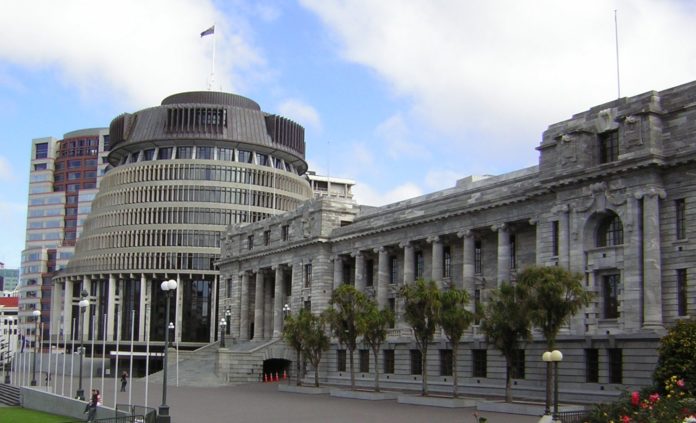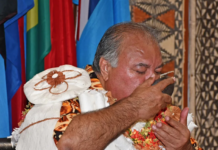Analysis by Dr Bryce Edwards.
Political Roundup: MPs set for a big post-election pay increase
One of the most popular moves Prime Minister Jacinda Ardern ever made was the pay freeze her government imposed on politicians back in 2018. The freeze may have only been grudgingly agreed to by other MPs and parties, but it had universal public support.
The pay freeze is due to end this year, and new rules for setting politicians’ pay mean MPs are likely to get a huge increase to make up for six years of standing still. The move should spark debate about whether we pay our politicians too much, and whether it’s appropriate during a cost-of-living crisis for politicians to receive a major pay increase.
Fixing the disparities in politicians’ pay
For the last five years, politicians have had to forgo annual pay increases. Back in 2018, the newly elected Labour-led government implemented a pay freeze when MPs were about to receive an embarrassingly high pay increase. At this time, the Government was pushing to limit the pay demands of public servants, and the scheduled MP pay increase for that year was viewed as hypocritical.
Ardern argued at the time that a politician pay freeze was “the right thing to do”, and she cited the need to make New Zealand a more equitable nation.
She highlighted that the pay gap between politicians and the public was too great. Similarly, around that time Green MP Chloe Swarbrick said “I think politicians in regard to the rest of society are overpaid and I feel pretty gross about it”.
Are politicians paid too much?
The starting salary for backbench MPs is currently $163,961, with extra pay for additional parliamentary duties. There are numerous generous allowances as well, and a gold-plated superannuation scheme means that the taxpayer also gives MPs nearly $33,000 per year towards their retirement. Cabinet ministers are paid $296,007, and the Prime Minister gets $471,049.
A Newshub story in the weekend by Rachel Sadler shows that New Zealand politicians are very generously paid compared to other countries. For example, only six comparable countries pay their heads of government more than New Zealand does (Singapore, Hong Kong, Switzerland, the United States, Australia, and Germany). In the UK, for example, British Prime Minister Rishi Sunak has a salary of about $308,726. And in terms of MPs, Sadler’s research showed that “a backbench member of Parliament [in New Zealand] with no additional responsibilities earns considerably more than some MPs in comparable countries.”
New Zealand politicians are also way out of kilter with the general public. MPs are now part of the top one per cent of income earners in this country. The PM earns about nine times the average income. And with MPs earning $163,961, they get nearly three times the average median income of $61,828.
The problem is that the disparity between politicians and ordinary people has been growing in recent decades. According to Newshub’s Rachel Sadler, “There was once a time when backbench politicians and teachers were paid a similar salary. However, now that gap has ballooned and now there’s a 423 percent difference between the maximum salary for teachers and what the prime minister earns.”
According to the Post Primary Teachers’ Association Te Wehengarua (PPTA), “in 1976 teachers were paid $12,370 and a backbench MP was paid a total of $14,097 in salary and allowances.”
There is a basic political and democratic problem with the increasing gap between the living standards of politicians and the public. The increase in pay will further distance the politicians from the realities of most people’s daily lives. So while those on the average wage struggle with daily bills, such problems are simply not felt or understood by our representatives. MPs get used to a life of comparative luxury, in which they typically own multiple houses and investments.
It was revealed last year, for example, that over half of MPs are beneficiaries of trusts – legal devices that are often used to reduce the tax bill of those involved. Increasingly, trusts are used to manage housing assets and avoid higher tax rates for assets.
A big pay rise coming
It was revealed over the weekend that politicians are to get a big pay rise later this year, after the election. The Government has changed the mechanism for how politician pay is set – asking the Remuneration Authority to review MP pay every three years after an election.
According to Newshub’s story in the weekend, “the Remuneration Authority must begin a review of MPs’ pay within three months of the writ being returned after the election.”
The way the new pay rules are set, means the Authority will have to give politicians a massive pay rise to make up for nearly six years of frozen pay. The Remuneration Authority is not allowed to take into account the public mood when working out how much politicians should be paid. In fact, Authority chair, Geoff Summers, has denied that public opinion and attitudes towards politician pay should be taken into account when setting pay, referring to the problem of “public prejudice” against MPs.
This ultimately means that our politicians are set to get a mega increase in salaries after the election. MPs, ministers, and the PM will therefore be even further insulated from the cost-of-living crisis. It will make it difficult for the Government to call for restraint from lower-paid workers in 2023 when their own salaries are about to skyrocket.
Should MP pay be permanently frozen?
There is an argument that the Government, and Parliament, should put their upcoming pay review on hold, and perhaps make their current pay freeze semi-permanent.
Given that their pay rates have already spiraled way above average incomes, perhaps they even need to be reduced. The Prime Minister led the way with this in 2020 when she instituted a short-term, six-month 20 per cent reduction of salaries for her ministers. Perhaps this needs to be brought in again, and this time for all MPs.
In a time of serious inflation, poverty, and inequality, perhaps it’s time for politicians to lead by example, rather than quietly plan for a hefty increase in pay for themselves. In the absence of evidence of politician hardship, an ongoing pay freeze should be maintained.
The fact that politicians have arranged for their pay increase to occur after the election should spur questions on the campaign trail about whether MPs are happy to receive a huge pay increase.
But don’t expect any real answers. Politicians love to talk about everything except for the taxpayer funding of themselves and their parties.
As evidence of this, Newshub asked all the parties in Parliament for comment on their looming pay rise. The only response was from David Seymour, who had a very sensible reply, suggesting that higher pay isn’t necessary, as politicians shouldn’t be doing the job for the high salaries: “For some it’s the best job they’ll ever get, others will take a pay cut to do the job they love. That wouldn’t really change if you doubled or halved the salary.”
Rather than lock in the yawning disparity between New Zealand’s rulers and the ruled, we need a debate on whether the post-election pay increases should be cancelled. And more generally, it’s time for a bigger debate about politician pay, and what the right level of remuneration is.
Other items of interest and importance today
PARLIAMENT
Luke Malpass (Stuff): What National’s Christopher Luxon needs to do to become prime minister this year
George Block (Herald): Chinese-NZ businessman appeals against political donations sentence, stopped at border in error (paywalled)
Anna Whyte (Stuff): Summer off politics: Nicola Grigg’s plans to relax and get fit
LOCAL GOVERNMENT
Tom Dillane (Herald): ‘Help!’ – Mayor Wayne Brown’s ‘moaning’ first email to Auckland Council CEO covering beer, balance sheets and 400 jobs (paywalled)
Herald: Tory Whanau on changing Wellington council and authenticity in politics
Tory Whanau (Newsroom): I want Wellingtonians to be proud of their city again
Felix Desmarais (Local Democracy Reporting): Rotorua’s Blue Baths left in a ‘staggering’ state after closure
HOUSING
Tom Hunt (Stuff): The eye-watering capital gains that owners of NZ’s most expensive homes have made
Susan Edmunds (Stuff): 40% of house listings have lowered their asking prices
Chris Tobin (Stuff): Property market moving towards favouring buyers
Anne Gibson (Herald): House construction inflation increase halves quarterly but hits new annual record
Greg Hurrell (BusinessDesk): CoreLogic predicts building industry slowdown as record cost growth eases (paywalled)
TRANSPORT
Riley Kennedy (BusinessDesk): Finance ministers: no need for crown to own 100% of Air NZ (paywalled)
Oliver Lewis (BusinessDesk): Christchurch misses out in transport funding lottery (paywalled)
Herald Editorial: Driver education one key factor to lower road toll (paywalled)
RNZ: Government exploring development of new dry dock in Northland
Grant Miller (ODT): Neutrality on Tarras airport affirmed
Timothy Welch (The Conversation): Road to nowhere: why the suburban cul-de-sac is an urban planning dead end
Emma Hatton (Newsroom): NZ’s role in green shipping corridors
Brook Sabin (Stuff): Govt asleep at the baggage carousel as countless Kiwi travellers lose bags
ENVIRONMENT
Nic Rawlence, Kerry Walton and Richard Walter (The Conversation): Can customary harvesting of NZ’s native species be sustainable? Archaeology and palaeo-ecology provide some answers
Niva Chittock (RNZ): Bodies meet to address biosecurity concerns over cruise ship cleaning
Sally Rae (ODT): Keen to discuss station’s forestry plans: ORC
COVID AND HEALTH
Jonty Dine (RNZ): Concern over new Covid-19 strain dubbed ‘Kraken’, but NZ has tools to deal with it – expert
Herald: Covid 19 Omicron outbreak: ‘Kraken’ XBB.1.5 subvariant detected in NZ, Ministry of Health confirms
Stuff: Covid-19: New variant nicknamed ‘Kraken’ detected in New Zealand
RNZ: Covid-19: XBB.1.5 variant detected in New Zealand
RNZ: Mpox: 5000 vials of vaccine to be available for at-risk people
FOREIGN AFFAIRS
RNZ: Protesters in Iran ‘dying on the street’ but govt remains silent – Green MP
Anna Whyte (Stuff): Chlöe Swarbrick, hip hop artists join call for release of Iranian rapper Toomaj Salehi
WESTPAC
Susan Edmunds (Stuff): Westpac: Check statements if you think you’ve been double-charged
Tamsyn Parker (Herald): Westpac banking blunder: Complaints surge as regulator engages with bank (paywalled)
MEDIA
Damien Venuto (Herald): Patrick Gower on the risk and reward of a personal touch in journalism
Martyn Bradbury (Daily Blog): Media Council decision on Fire & Fury Docudrama a sham and whitewash
OTHER
Hazel Osborne (Open Justice Reporting): Parliament protests: Charges dropped after month-long occupation
Herald: Massive leap in police CCTV surveillance of number plates sparks privacy, civil liberty concerns (paywalled)
Aimee Shaw (Stuff): 2022: A record year for consumer spending
Katie Harris (Herald): New Zealand criminal harassment reports more than double in last five years
Sam Olley (RNZ): Drink-makers’ concerns bubbling to surface after Todd Energy Kapuni outage
Dave Armstrong (Stuff): Right royal squabbles offer no support to republicans
Aimee Shaw (Stuff): Small parcel drone delivery one step closer in NZ, but will it ever become reality?
Karl du Fresne: The priggish intolerance of supposed liberals








